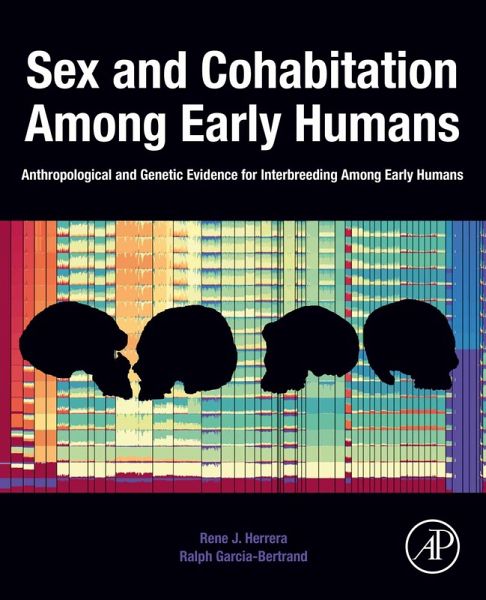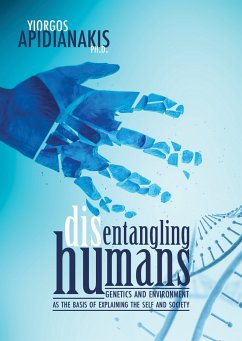
Sex and Cohabitation Among Early Humans (eBook, ePUB)
Anthropological and Genetic Evidence for Interbreeding Among Early Humans

PAYBACK Punkte
48 °P sammeln!
Sex and Cohabitation Among Early Humans: Anthropological and Genetic Evidence for Interbreeding Among Early Humans explores the available information regarding interbreeding among different ancestral human species. In addition, it reviews evidence in support of cohabitation as well as cultural and technological interactions and exchanges among early humans, particularly Neanderthal-sapiens interactions. The fields of archaeology, anthropology, genetics, linguistics and molecular evolution have provided a wealth of information on the complex processes involved in human evolution. The book will ...
Sex and Cohabitation Among Early Humans: Anthropological and Genetic Evidence for Interbreeding Among Early Humans explores the available information regarding interbreeding among different ancestral human species. In addition, it reviews evidence in support of cohabitation as well as cultural and technological interactions and exchanges among early humans, particularly Neanderthal-sapiens interactions. The fields of archaeology, anthropology, genetics, linguistics and molecular evolution have provided a wealth of information on the complex processes involved in human evolution. The book will help readers will develop knowledge on the complexity and multiplicity of hominins, including Homo heidelbergensis, Homo sapiens, and Homo floresiensis. Moreover, the book will help them reach a greater understanding of major topics, such as introgression, migration from Africa, the origin, development and extinction of Neanderthals, interbreeding between Neanderthals and humans, and trait continuity. - Integrates genetic, evolutionary, anthropological, archaeological, anatomical, artistic and linguistic research, among other areas - Written in a simple and direct style that is accessible to readers from different backgrounds and levels of understanding - Provides an integrative and holistic overview of recent developments in research on how different interactions between ancient hominins contributed to the evolution of our species
Dieser Download kann aus rechtlichen Gründen nur mit Rechnungsadresse in A, B, BG, CY, CZ, D, DK, EW, E, FIN, F, GR, HR, H, IRL, I, LT, L, LR, M, NL, PL, P, R, S, SLO, SK ausgeliefert werden.













